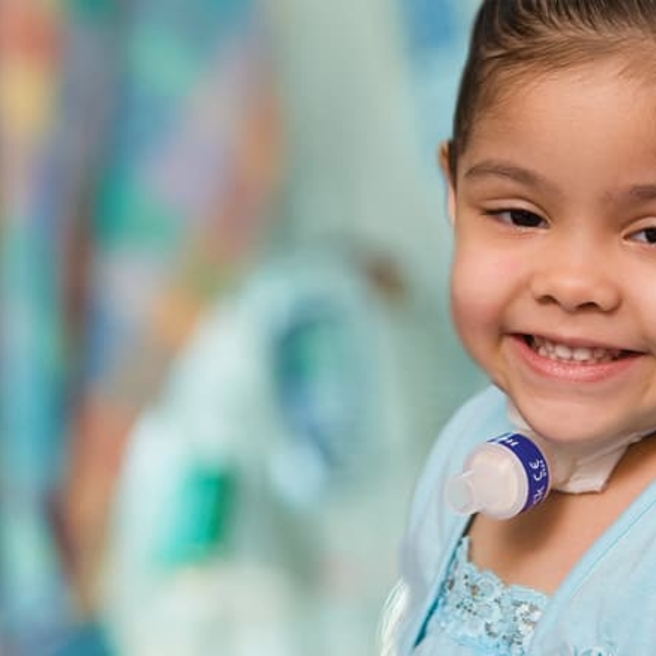What is recurrent respiratory papillomatosis?
Recurrent respiratory papillomatosis, or RRP, is an extremely rare condition caused by the growth of viral warts in the larynx. These benign growths are treatable but not curable.

Causes
Human papilloma virus (HPV) is believed to be the cause, or one of the causes of recurrent respiratory papillomatosis. HPV subtypes 6 and 11 are most commonly associated with RRP, but type 11 appears to be more aggressive and more associated with airway obstruction, and spread into the lungs.
Some children need a tracheostomy to bypass the obstruction because the RRP growth is so aggressive. Recurrent respiratory papillomatosis is the most common benign tumor of the larynx in children.
Signs and symptoms
The most common symptoms of recurrent respiratory papillomatosis are:
- Chronic hoarseness
- Stridor (noisy breathing)
- Respiratory distress
Other symptoms of recurrent respiratory papillomatosis may be mistaken for conditions such as asthma, croup, allergy, bronchitis, and vocal cord nodules. They include:
- Chronic cough
- Episodes of choking
- Recurrent pneumonia
- Failure to thrive
- Shortness of breath
- Difficulty swallowing
- Snoring
Treatment
Recurrent respiratory papillomatosis is treated with surgery to debride (remove) the benign growths from the airway without damaging the underlying structures, such as the vocal folds. This is done in the operating room under anesthesia. Surgical removal must be done as often as necessary to provide the child with a safe, unobstructed airway. Surgery may be required anywhere from monthly, to once every year or two. The procedure is not painful and takes approximately 30 minutes. The debriding process may be done using a variety of techniques:
- Microdebrider tool
- Carbon dioxide laser
- Surgical instruments
- Pulsed dye laser
Your child's surgeon will recommend the method that best meets your child's needs.
Children who develop recurrent respiratory papillomatosis before the age of 3 usually have frequent recurrences and will require multiple surgical debridement procedures. In some children, the RRP may become latent (growth stops) after puberty.
What to know before your appointment
Let us help you prepare for your child's upcoming appointment with the Center for Pediatric Airway Disorders.
Medications for Recurrent Respiratory Papillomatosis
When recurrent respiratory papillomatosis continues to occur even after repeated surgical debridements, or when it spreads to the lungs, additional therapy with medications is needed. Drugs used include cidofovir, interferon alpha and other experimental chemotherapeutic regimens. Responses to the drugs tend to vary.
Prevention: HPV vaccine
The HPV vaccine is effective in preventing the virus that causes recurrent respiratory papillomas.
Resources to help
Center for Pediatric Airway Disorders Resources
We have created resources to help you find answers to your questions about airway disorders and feel confident with the care you are providing your child.

